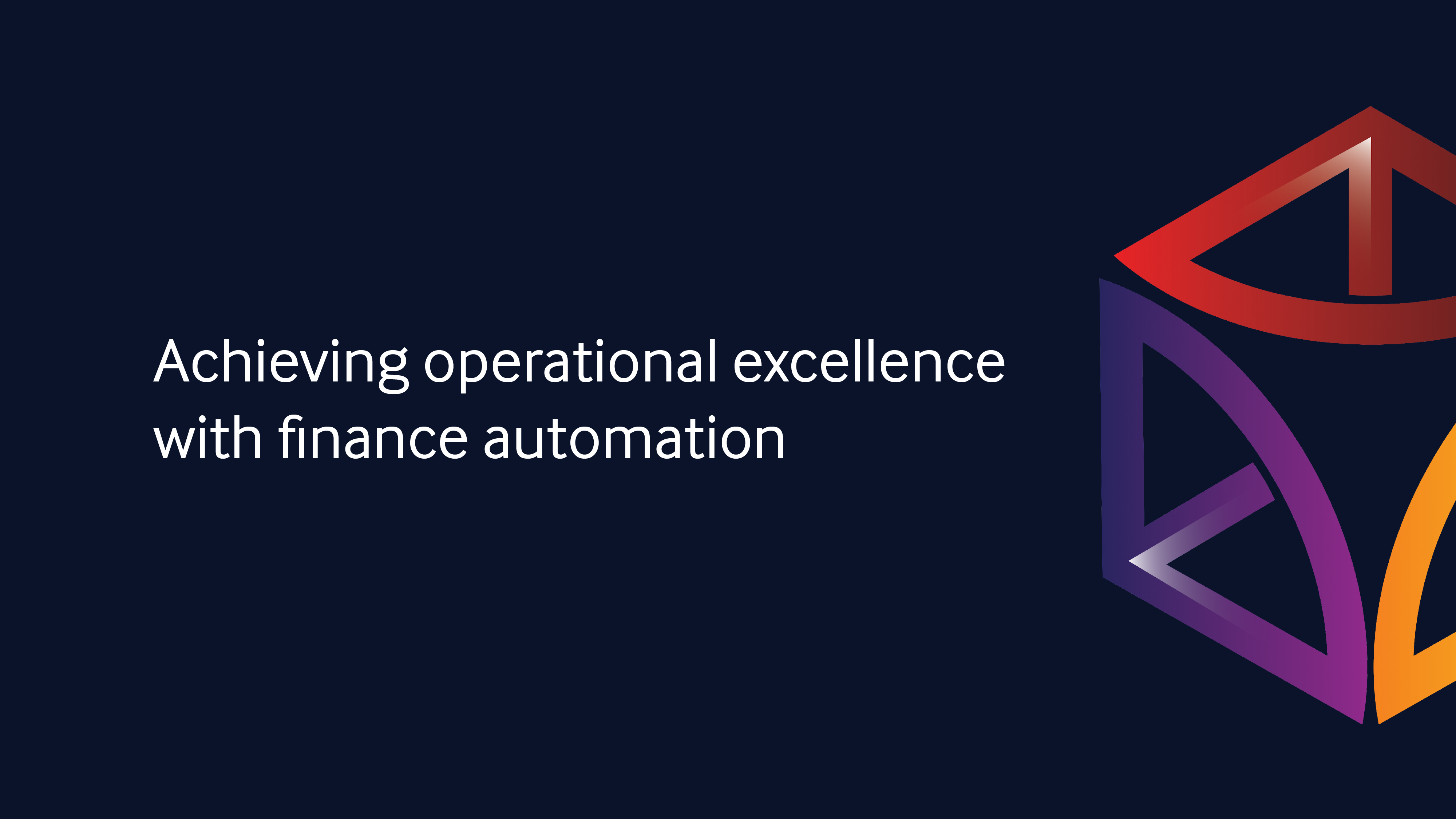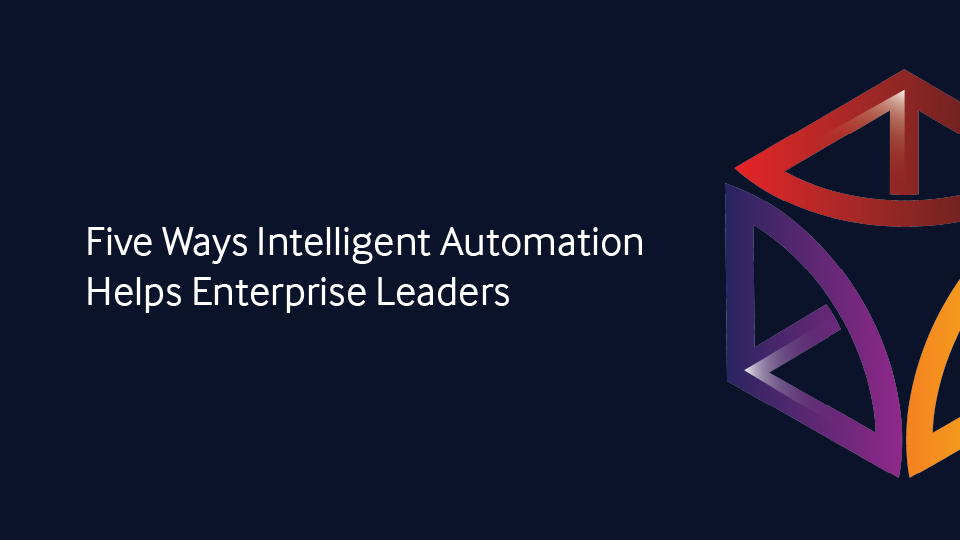

Elsa Petterson
Partner success manager @ Put It Forward
Table of Contents
Intelligent workflow automation can enhance your business in every possible area and help you combat the most common problems haunting enterprise teams. Then read on.
Summary
- Automation is transforming into Intelligent Automation to help enterprises tackle more complex problems and processes.
- The emergence of Intelligent Automation Platforms, scalable, comprehensive and pay-as-you-grow.
- Intelligent Automation Platforms offer the enterprise one solution to integrate, automate and predict across all functions.
- Intelligent automation platforms are Powered by AI and ML, allowing enterprises to execute processes autonomously, freeing up humans to deliver enhanced value.
- On average, enterprises using Intelligent Automation platforms have seen an 80% cost efficiency improvement and a 5X increase in productivity.
Business Value of Using Automation Technologies
When considering automation, people usually think about repetitive tasks performed automatically. However, there is much more to that, and automation bears high value for many businesses, yet they fail to spot it. How exactly does it help?
To begin with, automation technologies (especially intelligent ones) lead to quick, data-driven decision-making, often in real-time. This means spotting patterns in the data, fishing out the abnormalities, making predictions based on them, and adjusting to the scenarios that are about to come.
Secondly, automation in organizations is concerned with far more than simple, repetitive tasks nowadays. It can be applied to even the most complex problems – you need to implement deep learning and let it gain knowledge from your employees.
Finally, automation technologies reduce the number of errors. As humans, we are bound to commit them unwillingly and by mistake. But tech and AI won’t make those mistakes – you can ensure that your automation solution follows the procedures, ensuring that the quality is always preserved.
Intelligent Automation for Any Team
After this brief introduction, we may focus on the role of intelligent automation and the five ways it affects different teams in your organization. But before that, let us define intelligent automation.
What is IA (intelligent automation)? It uses automation technologies alongside artificial intelligence, deep learning, robotic process automation (RPA), and business process management to improve decision-making, streamline processes and tasks, free up (human) resources, and improve general efficiency within a company. It’s simply traditional automation taken to the next level, where it’s autonomous and capable of handling more complex tasks.
Knowing that we may proceed with the problems that intelligent automation technologies solve in each team in your organization.
Sales Teams
We may start with sales. These teams usually struggle with the following challenges:
- The ever-evolving customer journey, with customers becoming more aware and having higher expectations.
- Increased costs of customer acquisition, with customer churn rising at the same time.
- Longer, more complex sales cycles lack proper revenue forecasting and leakage.
- The lack of ability to leverage insights to enable a simpler and more efficient seller workflow.
- Inability to connect customer data across all the GTM teams and platforms, thus improving financial performance and better customer insights.
With intelligent automation for sales, all of these can be battled. This is because
- With intelligent automation, you can map out the customer journey more precisely, gathering as much information as possible and leveraging this data to improve your approach to customers to meet their rising expectations.
- You can generate predictive insights regarding your customers with IA. This way, you can forecast what products your customers will want to buy next and create relevant offers to maintain customer satisfaction and improve customer retention.
- IA will also help you model and forecast your revenue and set your goals based on such forecasts. This can help you handle long sales cycles without causing too much revenue leakage.
- With intelligent automation, you may simplify the seller workflow by eliminating the tasks that can be done with AI and leaving your employees with fewer but more critical and complex jobs.
- Intelligent data integration available with intelligent automation will help you align your GTM teams and improve the processes that flow between sales, marketing, and finance teams. It will also give each team a more detailed, “full” insight into the customers, letting them make better-informed decisions.

Marketing Teams
When it comes to marketing teams, the most common challenges are:
- Low visibility of marketing performance, thus no understanding of where to invest to get more.
- Lack of metrics and methods to predict marketing lead generation results and acquisition costs.
- Vast competition in the market.
- Lack of equipment to demonstrate the quantifiable impact of marketing spend across all channels.
- Inability to deliver scaled personalization across the funnel.
With intelligent automation for Marketing, teams can track the customer journey across all touchpoints, get complete visibility of customer engagement, and predict the next moment of purchase.
What is the role of IA in dealing with these challenges? Firstly, data integration can be leveraged to merge the data from different teams and their platforms and channels, enabling your teams to create a truly omnichannel customer experience. This also means that your IA platform will be capable of analyzing all data, not only the one collected by the marketing team, to evaluate existing campaigns across channels and against competitors, giving you a deeper understanding of your marketing ROI. Finally, intelligent automation platforms are scalable – whether you get 50 or 50K impressions daily does not matter, as the system will still be able to deliver a similar level of personalization to each potential customer.
Finance teams
What problems occur, and how can automated intelligence solve them? Take a look below:
- Human errors in financial analysis.
- Disparate and siloed financial data.
- No real-time insights into the market and trends
- Complex workflows
- Inaccurate business growth forecasts
Intelligent finance automation is an effective solution to these problems for three reasons:
- Data processing capabilities – With IA, your data will be integrated into one platform and analyzed by AI in real time. This means you will have the most up-to-date financial forecasts based on the correct data.
- Automation – To add to that, you will limit the possibility of human error and simplify the workflows by automating as many tasks as possible.
-
Automate non-value-added tasks and get predicted insights to unlock and scale new ideas faster. Empower your teams to get access to a single source of truth and work efficiently on your business goals.
IT teams
IT teams also face problems that could be resolved with…technology. What are they in particular?
- Lack of one solution to manage data, processes, and people.
- Poor customer experience and lack of knowledge of how to improve it.
- Data integration solutions that do not work as intended or slow down the processes.
- Little or no automation.
- Growing tech debt.
Intelligent IT transformation may solve all these IT problems as well. From introducing high-level automation to let the (expensive) IT specialists focus on high-value tasks to integrating the data from the whole tech stack, thus reducing the tech debt and providing one unified platform for managing data, processes, and people – it’s all possible with IA.

Operational Teams
The challenges in operational teams include
- Lack of advanced data infrastructure to manage the growing volume of data.
- Limited analytical techniques to measure future opportunities and customer success.
- Inability to optimize the execution of operations to cover customer needs.
- Lack of visibility of all processes and operations.
- Unable to uncover areas of business opportunities.
With Intelligent Operations, you will quickly fill the analytical gap within your operational teams and gain a better overview of the processes and operations while predicting upcoming business opportunities. Additionally, large amounts of data will no longer remain a problem, as AI will handle them effectively, and you can adjust your operations depending on each customer’s expectations.
Customer Success Teams
Customer success teams also struggle with the following challenges:
- Lack of complete customer information, with it being fragmented between different teams.
- Inability to predict customer churn.
- Inefficiency – too many resources put into solving simple tasks.
- Insufficient tools for measuring and demonstrating customer success.
- Difficulty in proactively identifying and addressing customer needs.
IA provides advanced tools for data tracking and analyzing customer success while integrating the fragmented data into one system, providing customer success teams with maximum knowledge of each client. Additionally, intelligent automation platforms leverage predictive analytics and insights to find the potential indicators of customer churn and proactively counteract them before the customer leaves.
Uniqueness of Automation Integrity
Keeping all your channels, teams, and systems together and implementing automation across your whole organization – not restricted to particular areas or teams – has a unique effect that is impossible to achieve by other means. What is it?
It is the highest level of automation maturity. In this situation, your organization is, in many areas, autonomous, run by AI-based, deep-learning-driven decision-making, and executed by robotic process automation services. In such a business, your employees will be focused only on creating the highest value possible; thus, your overall ROI will be much higher than in other organizations.
Key takeaways
Intelligent automation solves problems in all teams within companies, so introducing IA at both team- and organization levels should be your aim. With one comprehensive, scalable, and pay-as-you-grow platform, you will streamline processes, improve the financial performance of your business significantly, uncover new growth options, and gain an edge over your competitors.
You may also read: Optimize your Go-to-Market Strategy with an Integrated Tech Stack.
Subscribe to our blog

